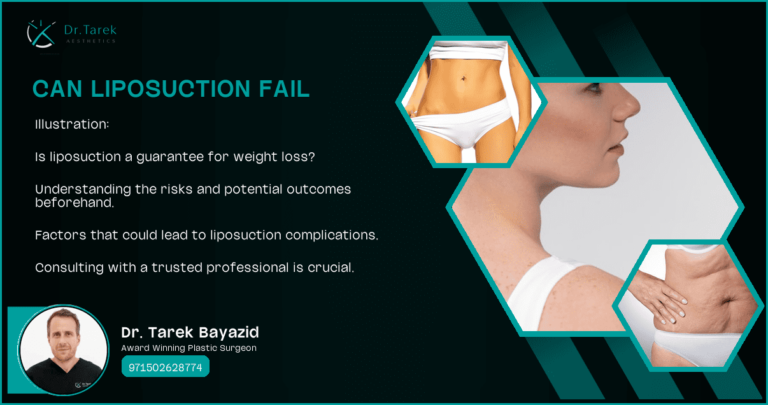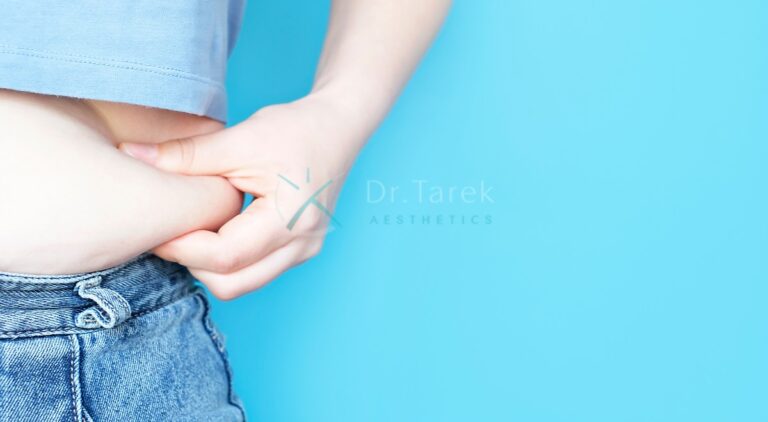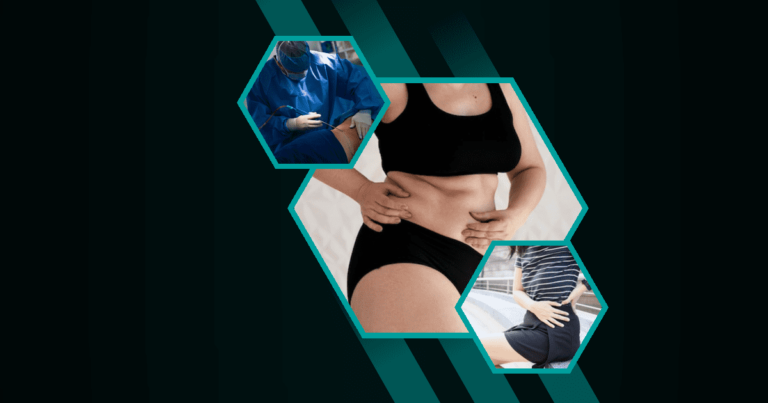Liposuction is a popular cosmetic procedure aimed at removing excess fat from specific areas of the body. While many people focus on aesthetic outcomes, it’s essential to consider how such a procedure might affect other aspects of health, including the menstrual cycle. A common question that arises is, “Can liposuction make my period late?” This article delves into the potential impacts of liposuction on menstruation, providing valuable insights for those considering the procedure.
Can Liposuction Make My Period Late?
Hormonal Changes After Liposuction
Liposuction can lead to hormonal changes in the body. The removal of fat cells, which play a role in hormone storage and regulation, can disrupt the hormonal balance. This disruption might lead to changes in the menstrual cycle, including delayed periods. Hormones like estrogen and progesterone, which are crucial for regulating menstruation, can be affected by sudden changes in body composition.
Sculpting Targeted Fat helps shape specific body areas
it uses special techniques to reduce fat in chosen spots
- Fat cells influence hormone levels.
- Hormonal imbalance can affect menstrual cycles.
- Estrogen and progesterone levels may fluctuate post-surgery.
Stress and Its Effect on Menstrual Cycles
Undergoing surgery can be a stressful experience, both physically and emotionally. Stress is a well-known factor that can delay menstruation. The body’s response to stress involves the release of cortisol, a hormone that can interfere with the normal functioning of the reproductive system. This interference can result in a delayed or missed period.
- Surgery-induced stress impacts menstrual regularity.
- Cortisol release can disrupt reproductive hormones.
- Emotional and physical stress are contributing factors.
Recovery Time and Menstrual Irregularities
The recovery period after liposuction can also contribute to menstrual irregularities. The body needs time to heal, and during this period, it may prioritize recovery over regular menstrual function. This can lead to temporary changes in the menstrual cycle, including delays.
Book A Consultation With Dr Tarek Bayazid
Top-rated Plastic Surgeon For Liposuction in Dubai
Installment Plan Available
- Recovery prioritizes healing over menstruation.
- Temporary menstrual changes are common post-surgery.
- Healing time varies among individuals.
How Does Liposuction Affect the Body?
Fat Removal and Hormonal Balance
Liposuction involves the removal of fat cells, which can alter the body’s hormonal balance. Fat cells are involved in the production and storage of hormones, and their sudden removal can lead to hormonal fluctuations. These fluctuations can impact the menstrual cycle, potentially causing delays.
- Fat cells contribute to hormone production.
- Removal can lead to hormonal fluctuations.
- Menstrual cycle may be affected by these changes.
Post-Operative Inflammation and Healing
After liposuction, the body undergoes a healing process that includes inflammation. This inflammation can affect the body’s overall functioning, including the menstrual cycle. The body’s focus on healing can lead to temporary menstrual irregularities.
- Inflammation is part of the healing process.
- It can impact overall body function.
- Menstrual irregularities may occur during healing.
Potential Complications Affecting Menstruation
While liposuction is generally safe, potential complications can arise that may affect menstruation. These complications can include infections or hormonal imbalances, which can further delay the menstrual cycle.
- Infections can impact menstrual health.
- Hormonal imbalances may result from complications.
- Menstrual delays can be a sign of complications.
Is It Normal to Have a Delayed Period After Liposuction?
Typical Menstrual Cycle Changes Post-Surgery
It is not uncommon for women to experience changes in their menstrual cycle following surgery, including liposuction. These changes can include delayed periods, irregular cycles, or even skipped periods. Such changes are usually temporary and resolve as the body recovers.
- Menstrual changes are common post-surgery.
- Delays and irregularities are usually temporary.
- The body typically returns to normal function over time.
When to Consult Your Doctor
If menstrual irregularities persist beyond a few cycles, it is advisable to consult a healthcare professional. Persistent changes could indicate underlying issues that need medical attention. Dr. Tarek suggests monitoring your cycle and seeking advice if irregularities continue.
- Consult a doctor if irregularities persist.
- Persistent changes may indicate underlying issues.
- Monitoring your cycle is crucial for health.
Factors Influencing Menstrual Regularity After Liposuction
Several factors can influence menstrual regularity after liposuction, including age, overall health, and the extent of the procedure. Understanding these factors can help in anticipating potential changes in the menstrual cycle.
- Age and health impact menstrual regularity.
- The extent of liposuction can influence changes.
- Awareness of these factors aids in preparation.
Can Liposuction Cause Amenorrhea?
Temporary vs. Prolonged Absence of Menstruation
Amenorrhea, or the absence of menstruation, can occur temporarily after liposuction. However, if the absence is prolonged, it may indicate a more serious issue. Temporary amenorrhea is often due to the body’s adjustment to changes post-surgery.
- Temporary amenorrhea can occur post-surgery.
- Prolonged absence may indicate serious issues.
- Body adjustment is a common cause of temporary amenorrhea.
Underlying Health Conditions and Liposuction
Pre-existing health conditions can influence how liposuction affects menstruation. Conditions such as polycystic ovary syndrome (PCOS) or thyroid disorders can exacerbate menstrual irregularities post-surgery.
- Health conditions can affect menstrual outcomes.
- PCOS and thyroid issues may worsen irregularities.
- Pre-existing conditions should be considered before surgery.
Hormonal Imbalances Triggered by Surgery
Surgery can trigger hormonal imbalances, leading to menstrual changes. These imbalances are often temporary and resolve as the body stabilizes. However, monitoring is essential to ensure they do not persist.
- Surgery can cause temporary hormonal imbalances.
- Menstrual changes may result from these imbalances.
- Monitoring is crucial for long-term health.
How Long Can Liposuction Affect Your Menstrual Cycle?
Short-Term Menstrual Irregularities
In the short term, liposuction can cause menstrual irregularities such as delayed periods or changes in flow. These irregularities are typically temporary and resolve as the body recovers.
- Short-term irregularities are common post-surgery.
- Delayed periods and flow changes may occur.
- Recovery usually leads to normalization.
Long-Term Effects on Hormone Production
While short-term effects are more common, some individuals may experience long-term changes in hormone production. These changes can affect menstrual regularity and require medical evaluation.
- Long-term hormone changes are less common.
- Menstrual regularity may be affected.
- Medical evaluation is recommended for persistent issues.
Monitoring Your Cycle Post-Liposuction
Monitoring your menstrual cycle after liposuction is essential for identifying any irregularities. Keeping track of changes can help in seeking timely medical advice if needed.
- Monitoring helps identify irregularities.
- Tracking changes aids in timely intervention.
- Regular monitoring is crucial for health.
Liposuction Recovery and Menstruation
Post-Operative Care and Menstrual Health
Proper post-operative care is crucial for overall recovery and menstrual health. Following medical advice and attending follow-up appointments can help ensure a smooth recovery process.
- Post-operative care is vital for recovery.
- Follow medical advice for best outcomes.
- Attend follow-up appointments for monitoring.
Nutrition and Hydration for Hormonal Balance
Maintaining a balanced diet and staying hydrated can support hormonal balance post-surgery. Proper nutrition aids in recovery and helps regulate the menstrual cycle.
- Balanced diet supports hormonal health.
- Hydration is crucial for recovery.
- Nutrition aids in menstrual regulation.
Managing Stress During Recovery
Managing stress is essential during the recovery period. Stress-reducing activities such as meditation or gentle exercise can help maintain menstrual regularity and overall well-being.
- Stress management is crucial for recovery.
- Activities like meditation support well-being.
- Reducing stress aids in menstrual regularity.
When to Seek Medical Attention for Menstrual Changes After Liposuction
Signs of Abnormal Menstrual Patterns
If you notice significant changes in your menstrual cycle, such as prolonged absence or severe irregularities, it is important to seek medical attention. These changes could indicate underlying issues that require evaluation.
- Significant changes warrant medical attention.
- Prolonged absence may indicate issues.
- Evaluation is necessary for abnormal patterns.
Potential Complications Requiring Immediate Care
Certain complications, such as infections or severe hormonal imbalances, may require immediate medical care. Recognizing these signs early can prevent further health issues.
- Complications may require immediate care.
- Infections and imbalances are potential risks.
- Early recognition prevents further issues.
Follow-Up Appointments with Dr. Tarek
Regular follow-up appointments with your healthcare provider, such as Dr. Tarek, are essential for monitoring recovery and addressing any concerns. These appointments ensure that any issues are promptly addressed.
- Follow-up appointments are crucial for monitoring.
- Address concerns with your healthcare provider.
- Regular check-ups ensure prompt issue resolution.
According to a study published in the Journal of Clinical Endocrinology & Metabolism, approximately 30% of women experience menstrual irregularities following major surgical procedures. Understanding the potential impacts of liposuction on menstruation can help individuals make informed decisions and manage their health effectively.em)
FAQ’s
Does Liposuction Affect Fertility?
Liposuction does not directly affect fertility. However, the hormonal changes and stress associated with surgery can temporarily impact reproductive health. It is essential to discuss any concerns with a healthcare provider.
- Liposuction does not directly impact fertility.
- Hormonal changes may temporarily affect reproductive health.
- Consultation with a healthcare provider is advised for concerns.
Can Liposuction Cause Weight Gain?
Liposuction is not a weight-loss procedure, and it does not prevent future weight gain. Weight gain can occur if lifestyle changes are not maintained post-surgery. It is crucial to follow a healthy diet and exercise routine to maintain results.
- Liposuction is not a weight-loss solution.
- Weight gain can occur without lifestyle changes.
- Healthy habits are essential for maintaining results.
How Soon After Liposuction Can I Exercise?
Exercise can typically be resumed a few weeks after liposuction, depending on individual recovery. It is important to follow the surgeon’s advice and start with light activities. Gradually increasing intensity can help maintain overall health and menstrual regularity.
- Exercise can resume a few weeks post-surgery.
- Start with light activities and follow medical advice.
- Gradual increase in intensity supports health.








